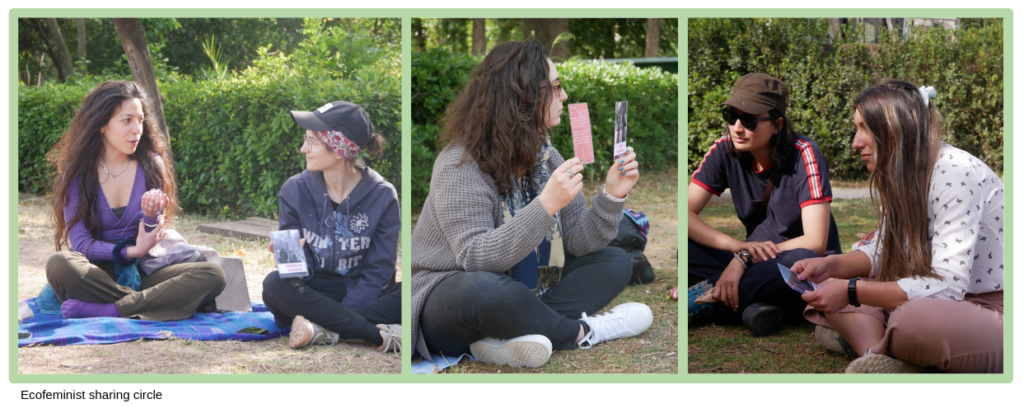
Αυτή η σελίδα δεν είναι μεταφρασμένη προς το παρόν.

We co-organised this activity with Seeding for future, a team of 7 ecologists that is going on a European tour facilitating workshops, raising awareness and looking for initiatives on environmental issues, exploring alternatives and inspiring people.
We chose to have the activity at Pedion tou Areos park in order to be close to an urban green space that our cities desperately need. When we first met, we were split in groups and talked about food. We shared thoughts and experiences on where we get our food, if we cultivate our own vegetables and fruits, if we buy local food and how we normally process our food. We also talked about our traditions and habits of eating together as a form of collective engagement, festivities and ways of sharing.
Food is not just another commodity. According to many environmental justice movements and struggles of indigenous communities, food and especially the land that the food is coming from encompasses different languages of valuation. The most prominent ecofeminist movements and ecofeminists such as Vandana Shiva advocate for food sovereignty and health of all living beings.
Ecofeminism extends the the Westerns feminism views by questioning the socio-economic system itself and its patriarchal structural dimensions while at the same time, recognises the possibilities of different range of feminisms within living beings. Ecofeminism confronts the duality between culture and nature while advocating for healthy natural systems and symbiotic relationships among all living beings.
On this basis, participants explored the concept of ecofeminism, learned about different feminist movements and shared stories that involved positionality and oppression.




